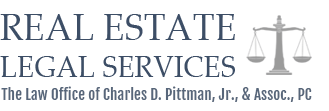Another Reason to Avoid Foreclosure
Our firm was recently contacted by a borrower who formerly took advantage of our free consultation on foreclosure prevention cases. The homeowner ultimately decided to allow his home to go into foreclosure and not fight for a short sale or other remedy. I don’t remember all the details why the decision was made to take the “hope and pray” approach of allowing foreclosure. No doubt there were compelling reasons at the time . . . the homeowner may have felt too busy to deal with providing financial information or getting the home ready for showings by a realtor. Sometimes it just feels like “throwing good money after bad” to invest legal fees, time and dwindling savings or income into accomplishing a short sale. In many cases of mortgage default, the financial pressure also results in divorce or other relational breakdown. But this sad case of a second consultation shows why taking the ostrich approach is a terrible idea.
The homeowners moved on and rented a new home and had no negative consequences from allowing their home to go to foreclosure for over a year! but nearly 18 months after the foreclosure, they received notices from a court in a Midwestern state that judgment had been entered against them personally for a substantial sum approaching six figures! In the “small print” of their original loan documentation there were “choice of forum” and “confession of judgment” provisions to make it very, very easy for the lender’s legal counsel to get a judgment against the borrowers for any money owed under their mortgage note and not recovered by the auction and foreclosure process. Typically, foreclosures recover 40% to 70% of value in Virginia or perhaps slightly more if the property is in a highly desirable location or school district. Short Sales generally recover from 60% to 95% of value for the lender and that figure is improving as the economy slowly recovers.
While there can be deficiency debts in short sales, this deficiency in the foreclosure was more than double what would ever have been owed in a short sale! The additional interest, late charges, legal fees, court costs, property maintenance expenses, etc., were staggering. The borrowers were blindsided by the judgment. Unlike a short sale deficiency which is negotiated and settled upon with “eyes wide open”, this notice apparently came out of the blue. While the lender or some collection agent was willing to take the time to actually find and notify the borrower of the deficiency judgment after it was rendered by an out-of-state court, no such effort to send the notice to the correct address was made prior to the judgment! The lender is entitled under Virginia law to rely upon sending notices of upcoming court cases against the borrower only to the last known address of the borrower on the records of the lender. If the homeowner moves and does not update the lender’s records as to the address of the borrower, judgments can legally be obtained against the borrower in far away courts with no notice unless a mailed notice happens to get forwarded. After a year, such forwarded mail is rare.
The outlook for the borrower is not good. Currently, the judgment is only an out-of-state judgment and won’t affect the assets, bank accounts, employment income, etc. of the borrowers where they currently live. It will show up on their credit report! But the judgment will often signal the resumption of collection calls and it can be “domesticated” in Virginia and serve as the basis of future garnishments of wages, bank accounts, etc.. Domestication can be contested but only on a very limited basis. Ultimately, cars and other assets can be levied and impounded. New real estate titles can be liened. Borrowers can be subpoenaed into court, under penalty of “contempt” and perjury and incarceration if they do not show up, to answer questions about their assets under oath. If the idea of incurring the expense and further credit damage of bankruptcy was not previously entertained, it will be strongly considered now!
The moral of the story is simple – What you ignore can hurt you! Be proactive about your obligations. Get legal help to defend yourself. Stay vigilant.


